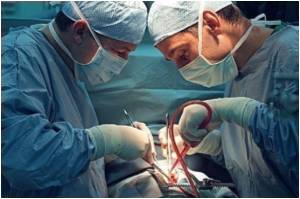Strokes, seizures and other neurological complications related to heart surgery account for considerable morbidity and mortality Loyola University Health System neurologists have reported.

Complications can involve any part of the central and peripheral nervous systems.
"Neurologic complications are always a risk with cardiac surgery, especially in older patients who have other health problems," said Dr. José Biller, first author of the article and chairman of the Department of Neurology at Loyola University Chicago Stritch School of Medicine.
Strokes are the most common neurologic complication after cardiac surgery in adults. In children, seizures are the most common neurologic complication.
However, Biller said patients should not be afraid to undergo cardiac procedures. Many complications are rare. And despite the risks, cardiac surgeries generally "are highly beneficial and life-saving," he said.
They examined neurologic complications related to cardiac catheterization exams, balloon angioplasties, ablation therapies for heart rhythm disorders, heart bypass surgeries, thoracic aortic surgeries, surgeries for congenital heart disease, cardiac valve surgeries, heart transplants, surgeries for heart tumors and procedures to close a hole in the heart called a patent foramen ovale.
Advertisement
The report has been published in the journal Hospital Practice.
Advertisement














